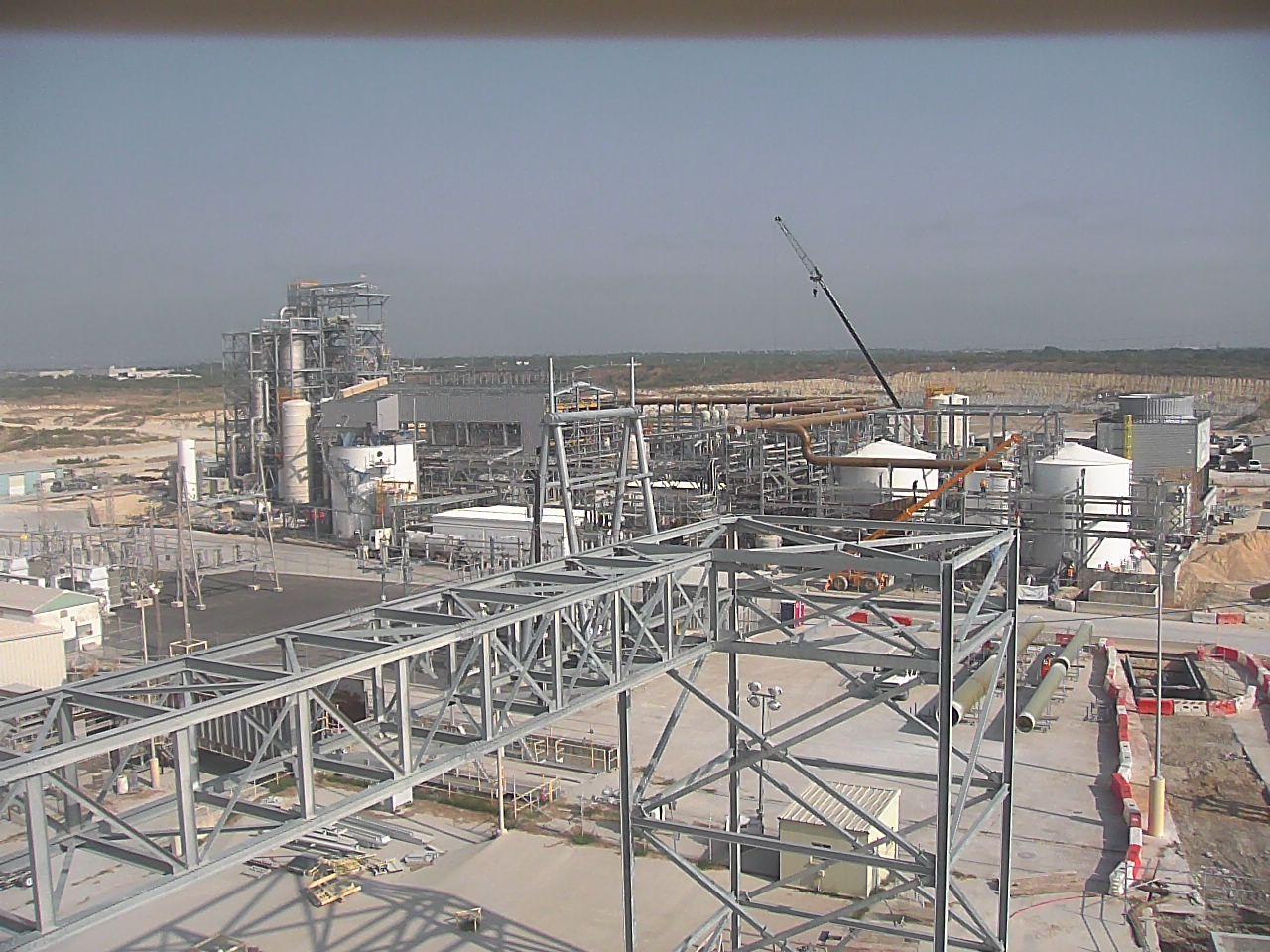Companies are finding ways to turn industry-generated CO2 into a profitable business
Skyonic Corporation’s Capitol SkyMine, the world’s first for-profit carbon mineralization plant, under construction in San Antonio, Texas
On October 21, The Skyonic Corporation hit the ON switch at a cement plant in San Antonio, Texas. Within a year, it expects to capture about 75,000 tons of CO2 from the plant and turn it into industrial liquids and solids to sell at a profit.
Skyonic’s process, called SkyMine, is unique. Unlike other carbon-capture techniques, which preserve CO2 as a gas or compress it into a liquid, SkyMine technology turns it into a mineralized form that can be used to make sodium bicarbonate (baking soda) and other products that have commercial value. The new plant can also make hydrochloric acid and sodium hypochlorite (otherwise known as bleach).
Acting Assistant Secretary of Energy Christopher Smith says the US Department of Energy, which invested $28 million in the Skyonic venture, has a stake in supporting companies that are finding innovative ways to capture harmful CO2 emissions.
“Over the last few years, we’ve committed over $6 billion to put in place real-world projects that are capturing CO2 that otherwise would be going into the atmosphere, and putting it to beneficial use,” Smith says. “That helps offset the cost of capturing the CO2 in the first place. So we see that as sort of a win-win.”
Smith says the DOE recognizes that in the grand scheme of things sodium bicarbonate does not have a large enough market to alleviate the problem of excessive CO2 emission, but he sees the project as an important first step towards commercializing some of these processes — taking ideas that work in the laboratory and deploying them out in the field. Indeed, he says, once a project like this is up and running, sometimes surprising benefits emerge.
“One of the things that's really interesting about these processes is that, as you find ways to create new sources of material, like sodium carbonate [or] sodium bicarbonate, you will subsequently find new uses for it,” he says. Bicarbonate can also be used to make limestone and other road materials, Smith points out.
Smith says the DOE is supporting another Texas carbon-capture project, though this one has a different purpose. The Petra Nova Carbon Capture Project, built in a retro-fitted coal-fired power plant just south of Houston, compresses CO2 and transports it by pipeline to an oil field, where it will then be injected underground to help increase oil production.
While it may seem ironic that captured CO2 is being used to help extract more fossil fuel, Smith points out that a project like Petra Nova is “actually doing a lot of really useful things.”
“You're importing less oil, which means you're not bringing it from distant sources; you're creating opportunities right here in United States, including jobs and economic development; you're increasing our balance of trade; the CO2 is being sequestered; and you're producing a barrel of oil that never would have been produced otherwise, but you're not increasing demand,” he explains.
And though the DOE continues to research and invest in alternative energy projects like wind, solar, enhanced geothermal and nuclear, Smith says the US must find ways to deal with the huge amounts of coal still being burned, both domestically and abroad.
“We have to come up with smart solutions,” he says. “We have to invest in a lot of different areas because, science being what it is, you don't know where it's going to take you. Every time that we have a success like this, every time we're able to take something from the lab scale and deploy it out in the field, it's important — because we’re taking an idea and turning it into a reality.”
This story is based on an interview that aired on PRI's Living on Earth with Steve Curwood.
Our coverage reaches millions each week, but only a small fraction of listeners contribute to sustain our program. We still need 224 more people to donate $100 or $10/monthly to unlock our $67,000 match. Will you help us get there today?
